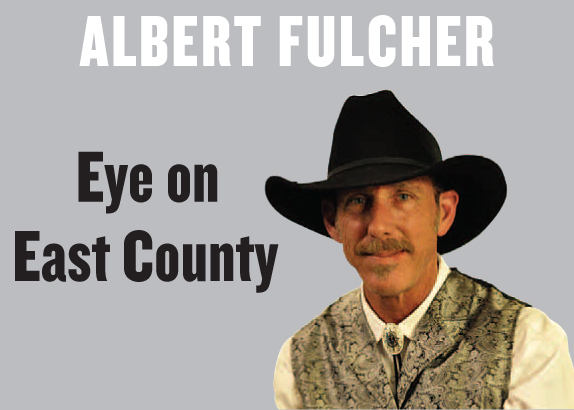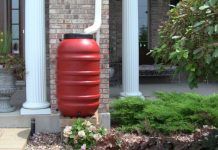I have been all over East County and though it is not something new, the disappearance of our backcountry is becoming more and more evident. I can go to one place, then return a week or two later and see something new. And most times, it is an unwelcomed sight.
I have been all over East County and though it is not something new, the disappearance of our backcountry is becoming more and more evident. I can go to one place, then return a week or two later and see something new. And most times, it is an unwelcomed sight.
New developments, corporate projects and housing are quickly urbanizing our backcountry and there seems to be no end in sight. To many it is not only a loss of precious natural land, but also a way of life, and on the other hand many see this as moving forward and expanding community. Many people that live in the backcountry come from generations of farmers, ranchers and simply those that choose to live away from urbanized areas. It has also been a big draw for those that move to the County, giving them a comfort of living a life they grew up accustomed to. East County reminds me of home and growing up. But land is a precious commodity in many ways.
To people that choose to live and make a living in the backcountry it is living the life of self sufficiency and the pioneering of independent living. To developers, whether building new housing to large corporate entities, it is valuable to the bottom line. An opportunity to seize the moment for profit and as a result, steals valuable land, natural resources and the peaceful living for those that have chosen the backcountry as home.
Many people do not choose to live out here because of greed, but rather they choose to keep the simplistic lifestyle that urbanization destroys. This is a concept I fully understand growing up in a family of farmers and in a time where there was plentiful open land that helped shaped me into who I am today. To this day, I would much rather be living on acres of land where I can grow my own food, invest in stock and live an almost self sufficient life with my family and me depending on the land and our labor more than the grocery store down the street or the nine to five job. I find comfort in open spaces, which in reality no longer exist, and throughout my life have watched as we continue to put this lifestyle, the right of any person on the backburner of progress. But the real question lies in whether or not progress is worth the price.
And the enemy is progress. Housing, energy, natural resources are encroaching on this way of life and there seems to be no way of stopping it. Within many of our lifetimes, we will see the breakdown of our backcountry, a place where families can be more self-reliant, wildlife can thrive and contribute to our environment, and a way of life fades away.
This has been on my mind a lot lately as I am soon leaving for a week. I’m headed to Georgia, where the woods abound and life is a bit slower. I know that it has changed, but there is still a lot there that leaves much for people that don’t want to live in the city. Then I’m headed to the panhandle of Florida, spending some long days at a cabin by the lake. It is off the grid time for me, as you can always take the man out of the country, but you can never take the country out of the boy that grew up there. I have to admit that age has made a difference. I remember a time when I couldn’t wait to leave, but as I’ve gotten older, there is not a day that passes by that I don’t long for a more simplistic lifestyle.
We cannot allow those who make these stark decisions that forever change this local way of life. I understand progress, and many times we have no control over growth of population. But we do need to think more about creating the culture for all of our population. We need to fight to keep as much of our backcountry as it is, not only for the people that like a quieter way of life away from suburban, inner-city living, but also for the wildlife that depends on this specific ecosystem to sustain life for all.














